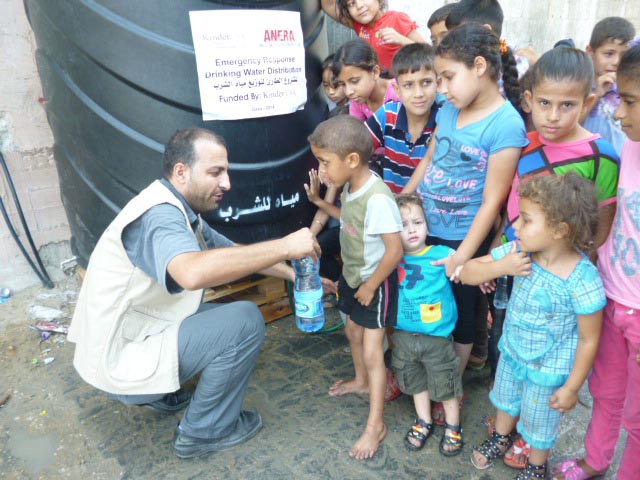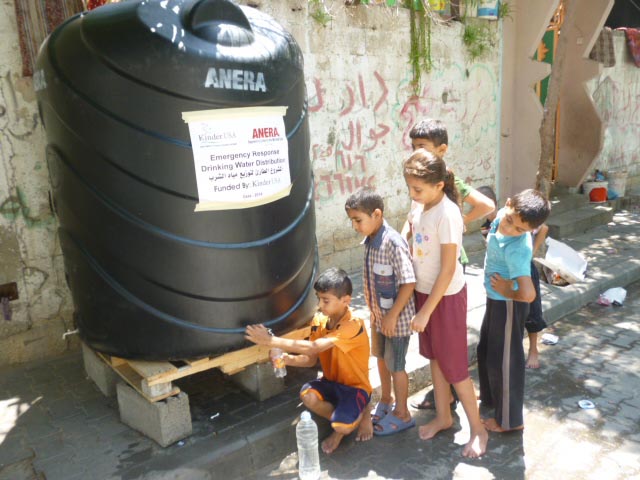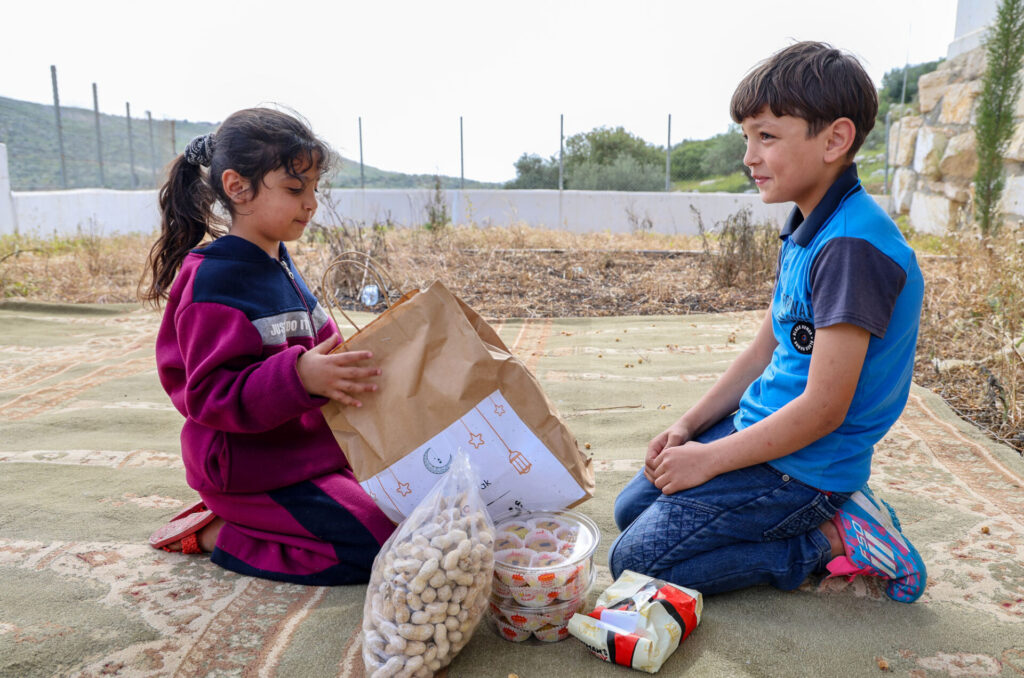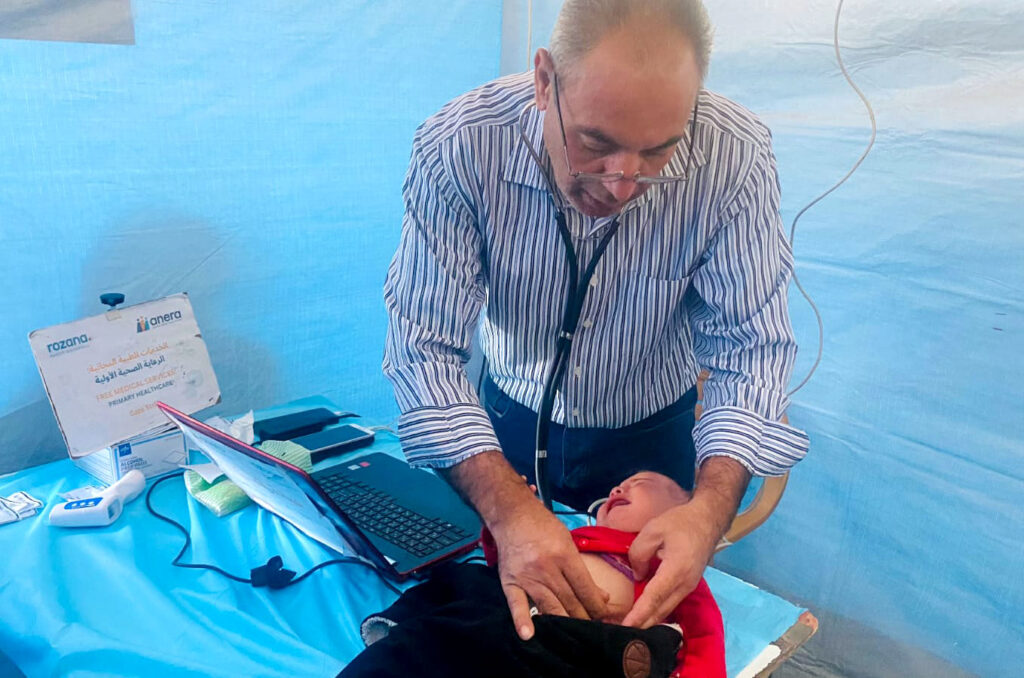Aug, 2014
When a short-term ceasefire was announced, children, women and men went into the streets with their empty bottles, jugs and jerry cans looking for places to fill them with water to drink. Bombing damage to infrastructure has created water shortages everywhere.
“As a resident of Khan Younis and a member of Anera emergency response team, I can tell you that the area has been suffering huge water shortages since the start of the bombings. The eastern and western parts of Khan Younis were immensely affected as the major water and electricity feeder lines were totally destroyed,” said Ahmed El-Najaar, Anera’s in-kind program coordinator.


Due to very poor economic conditions, Najah cannot afford filling her two rooftop water tanks. Instead she usually fills them partially at the cost 5-10 NIS - about $1 - 3 USD. Najah recalls a time she ran out of water for three days. “I kept the water tap turned on day and night looking patiently for a few drops of water to fill my empty tanks."
The main causes of the Gaza water crisis in this neighborhood, located in the center of Gaza City, are the old and deteriorated water networks. The leaking pipes cause huge losses of water. The water supply in Gaza is contaminated by high levels of saline, chloride, and nitrates, which are triple the safe level that the World Health Organization (WHO) recommends. The increased salinization and pollution are caused by continued over-abstraction of water from the Coastal Aquifer Basin – the only source of water for 1.8 million people in Gaza.
Two trucks of tankered water were immediately sent into the region as part of a joint humanitarian water convoy that had safe passage into the heavily bombed area.
“When I first visited Khoza’a [population 15,000] it was like an earthquake had hit it. I saw destroyed homes everywhere and smelt death and blood. Many families are homeless now and some are still looking for corpses under the rubble,” says Ahmed.
“The Anera trucks were swarmed with residents when they first arrived,” said Ahmad. “People were getting something they hadn’t had for a long time and they were in a panic that they wouldn’t have it again. But everyone calmed down when they realized that the new water tanks weren’t going anywhere and that Anera would refill them regularly,” Ahmed says.




Everyone calmed down when they realized that the new water tanks weren't going anywhere and that Anera would refill them regularly.
While Ahmed coordinated distributions in Khan Younis, Anera’s emergency team expanded water tank deliveries to the communities of Jabalia, El-Maghazi, El-Bureij and El-Maghazi in the middle and northern areas of Gaza.
“Water is a problem for us,” said Om Mohammed Abu Eida, a Jabalia resident. “We are hosting 10 families who fled from Beit Lahia and have nowhere to go. Our taps don’t bring us more than few drops of water, so the water tanks are really helping.”


